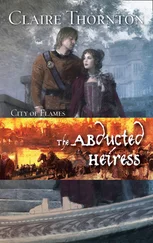Gustavo insisted that the raiders weren’t the townsfolk from Pedra Branca. They had to be complete strangers migrating from the southeastern cities of Macapá and Santana by the mouth of the Amazon River. The townsfolk of Pedra Branca had lived separately but peacefully beside the Wayãpi for decades, Gustavo argued. They knew one another, and people couldn’t take a machete to the face of someone they knew. (Zhen and Ned confided in each other that they had their doubts. People could and did do this.)
Gustavo had sworn to himself that he would never leave his people once he returned to them, but they were in grave danger from the outside world—again. After the third raid on the village, he decided to journey to the town where he had lived the majority of his life to see what had become of it and what could be done about the raiders who had to be coming through their roads.
Ned and Zhen couldn’t let Gustavo head off into danger alone, but Dewei chose to remain behind in the village. His wife had given birth recently. Dewei had already left two children behind in China for a top-secret mission that took him on a one-way flight to South America. When life gives you a chance at redemption, you seize it and hold tight.
“There Zhen is!” Ned called out from the second-floor hallway. “Hiding in her room during prayer again.”
He smiled with two rows of teeth bright against his bushy, dark beard. Ned enjoyed what he called “giving Zhen shit for skipping out on church.” Zhen reminded Ned, yet again, that she wasn’t hiding. She was from China; Communism was the only religion allowed. With that, Zhen tried to change the subject like she always did when guarding her atheism from her lovable, pushy friend.
“Thank you for letting us stay in your home,” Zhen said to Gustavo as they descended the stairs of the parish together.
But Gustavo shook his head.
“My home was always with the Wayãpi. This town is the path where I was called . It was where Father St. John was called as well. A mission isn’t the same as a home.”
But they could be the same. The Effort was both Zhen’s mission and her home. It was where her abilities reached such heights that they shocked her.
Gustavo had already said most of his goodbyes, but more than a hundred townsfolk still gathered in the street outside the parish to send him off. There wasn’t an easy affection between them, for Gustavo wasn’t like Ned, but there was respect and true appreciation for all he had done to give them back their community.
The parish was on the far side of the town, less than a mile from the dirt road leading to Wayãpi lands. Zhen, Gustavo, and Ned walked shoulder to shoulder down the empty paved street. Before the comet, the town had been evenly split between rural farmland on the perimeter and buildings clustered around the main road and inside a bend in the Amapari River. Four and a half years after the deflection, or in the middle of 4 AC, as Ned referred to his new calendar abbreviation for “after comet,” the municipal buildings, shops, and houses were nearly all abandoned. Many inhabitants had been killed in raids, and many more had become farmers on the edges of town.
The only families who lived in the buildings along the road were headed by men like Ned, who served in the local militia. This was the only job the townsfolk were willing to support through taxes on their harvest of rice, corn, beans, cassava, pineapples, oranges, bananas, and melons. It was very dangerous, but it brought honor and paid a lot of produce.
Zhen could remember the first time the three of them walked inside some of the abandoned buildings five months ago. Luckily, they wore clothes for the journey to Pedra Branca and could breathe through their sleeves, although they still choked on the stench of death. The three of them hiked out to the closest farmland and saw much of the same: entire families slaughtered with their bodies lying where they fell. They’re not fighting together , Gustavo had barely whispered. So they die a few at a time. Before the rest know to flee.
With that, Gustavo had run to his parish and found the hidden key to the building, right where the priest had always left it. Gustavo rang the church bells until the townsfolk left their farms and gathered outside. They had prayed for the return of the priest and their God. But here they got a poet, an engineer, and a pilot with no plane. Many of the townsfolk wept in disappointment.
Gustavo didn’t despair. He called the first of the townhalls. There were so many people they filled the pews and the street outside. Gustavo raised his voice so that it carried and told the townsfolk that if they didn’t make a stand and fight back, they would die. Raiders would go farm to farm and outnumber a single family. There needed to be a militia to patrol the town’s perimeter and ring the church bells to signal an attack. All the men would have to come running to fight. If they didn’t find safety in their numbers, they were doomed.
“Are you sure you wish to stay in Pedra Branca?” Gustavo asked Zhen and Ned suddenly.
The other two nodded vigorously as they walked. Ned looked to Zhen with shared understanding.
“I’m so grateful,” Ned insisted. “Everyone I ever met in the first twenty-seven years of my life is probably dead… I’m only alive because of you and the others.”
The Wayãpi were the most decent of peoples who had saved their lives at every turn. The warrior they encountered by the Eureupousine River had stayed his arrow. He was from an unknown tribe, but he understood enough of Gustavo’s words to know that the Oyapock River was their destination. He even hiked with them for half of a day to get them headed in the right direction and then pointed ahead with a frown that needed no translation: Leave these lands and don’t come back.
Once the band of four found the Oyapock River, they followed it upstream until they reached a village of “Other Wayãpi,” as Gustavo called them, on the northern bank of French Guiana. This was the September after the deflection, and they were starving again. The Other Wayãpi remembered Gustavo and took in both him and his ragged friends with no complaint. It took Gustavo, Zhen, Ned, and Dewei a week to regain their strength and heal their blisters. The Other Wayãpi wove carrying baskets from palm leaves and fastened shoulder straps made of soft bark. They packed food that lasted well: bananas and kwaky , a grainy porridge made from cassava flour. They even wrapped smoking embers tightly in a waxy palm leaf so the group could take fire on their journey across the Oyapock River to the southern bank of Amapá, Brazil. It took them another month to reach Aramirã.
“I’m so very grateful. But life in the village is a life for someone else,” Ned said. “It’s a life for you, Gustavo. And for Dewei, but not for me. Not for Zhen, either.”
Ned was two meters tall—or “six-foot-four” as Ned insisted when they sparred over the metric system. His skin was pale and covered in dark hair. The Wayãpi stared and pointed up at his full beard and hairy chest, calves, and thighs. The names of Wayãpi adults were considered private and guarded carefully. Many had Brazilian names or nicknames that they answered to instead. Gustavo’s name wasn’t really Gustavo, but that was what everyone in the village called him. It wasn’t long before Ned caught on to his nickname.
What’re they calling me? he asked Gustavo, and pointed to a group of men sitting on a log by a fire. Gustavo translated immediately: Big Ugly. That’s your nickname. Ned was taken aback. Why would you call me that ? he asked the men directly. Gustavo translated English to Wayãpi. One of the men answered matter-of-factly and Gustavo translated back. He said, “Brazilians are all ugly.” I know you’re not Brazilian, Ned, but invaders have carried so many different flags over the generations. It’s just easier to lump you together sometimes.
Читать дальше












